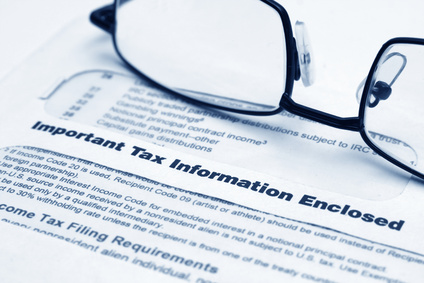Tax rules are confusing, especially when you don’t know if a mistake is just an error or something the IRS might see as evasion. This uncertainty induces anxiety among business owners, not due to an intention to violate the law, but because the penalties associated with small business tax evasion are particularly severe.
It’s important to understand how the IRS views tax evasion in 2025 and what penalties apply to it. As a small business, knowing the difference between those things that are legal tax savings and those that are in violation will keep the business on the right side of the law and protect its future.
Understanding Small Business Tax Evasion vs. Tax Avoidance
Knowing the difference between legal tax savings and tax evasion is what keeps small businesses out of audits or worse. Many owners confuse the two, but the IRS treats them very differently. In 2025, small businesses are under closer watch than ever.
- Tax avoidance is legal: Using tax rules to lower what you owe, as long as you do it honestly and with proper records. Examples include claiming deductions you qualify for, contributing to retirement plans, or timing expenses in a smart way. Good records are important here; they prove your tax savings come from legal planning.
- Tax evasion is illegal: Deliberately trying to avoid paying taxes by hiding income, inflating expenses, or ignoring filing and payment duties. The key difference is intent. Mistakes happen, but evasion involves knowingly breaking the law.
Many people think only large companies get accused of tax evasion. However, the IRS is now paying close attention to small businesses. This is especially true for those who deal in cash or use digital payment apps and online marketplaces. Starting in 2025, new technology will help the IRS match data, meaning even small mistakes in reporting can raise concerns.
Legal Definition of Tax Evasion for Small Businesses
By law, tax evasion is a willful attempt to avoid paying taxes that are owed. For small businesses, this usually involves three things:
- Willful intent: The owner or responsible person knew about the tax duty and chose not to comply.
- Underpayment of tax: The business left out enough income or overstated deductions to cause a meaningful shortfall.
- Proof standards:
- For civil penalties, the IRS must show clear evidence.
- For criminal charges, prosecutors must prove it beyond a reasonable doubt.
In 2025, IRS reports show that businesses in the service, retail, construction, and cash-heavy sectors are at a higher risk of audits. These businesses often underreport their earnings, which makes it easier for the IRS to spot issues during reviews.
Common Small Business Tax Evasion Examples
Small businesses sometimes face pressure to reduce costs or increase profit. In that process, some owners may choose actions that cross into tax evasion. The IRS treats these actions as serious warning signs. Common examples include:
- Leaving out cash sales, for example, a restaurant not recording part of its daily income.
- Using personal costs as business expenses, such as family trips or household bills charged to the business.
- Payroll tax evasion, like taking Medicare and Social Security out of paychecks but not sending the money to the IRS.
- Sales tax fraud involves collecting sales tax from customers but failing to pay it to the state.
- False recordkeeping involves keeping two sets of books or changing invoices to conceal income.
- Paying workers off the books, giving cash wages without reporting them.
- Misclassifying employees as contractors, calling workers “independent contractors” when they are really employees, to avoid payroll taxes.
- Not filing tax returns specifically for multiple years is considered willful by the IRS.
- Structuring cash deposits, breaking up deposits to stay under $10,000, and avoiding reporting rules.
Even when the unpaid tax looks small, these actions can trigger audits, large fines, and in some cases, criminal charges.
Civil Small Business Tax Evasion Penalties Structure
The IRS often uses civil penalties when small businesses make tax mistakes. You won’t go to jail, but the fines can stack up quickly. For many businesses, this is the first red flag that something’s wrong.
Accuracy-Related Penalties for Business Returns
The IRS applies this penalty when it believes a business did not take enough care with its return. It covers cases of negligence, ignoring rules, or reporting far less tax than owed.
- The penalty is 20% of the underpaid tax.
- For individuals, an understatement is “substantial” if it is more than 10% of the correct tax or $5,000, whichever is larger.
- For corporations, it is the lesser of 10% of the correct tax (or $10,000, whichever is more) or $10 million.
- The IRS will not apply both negligence and understatement penalties at the same time. Only one 20% penalty applies.
- A business can avoid this penalty if it shows it acted with reasonable care and had a sound basis for how it filed.
Fraud Penalty: 75% of Underpayment
This is one of the harshest civil penalties. It applies when the IRS proves the business intentionally tried to avoid taxes.
- The penalty is 75% of the part of the tax not paid because of fraud.
- The IRS must prove fraud with clear and convincing evidence.
- If fraud is proven, the 20% accuracy penalty is replaced with the 75% fraud penalty.
This penalty is meant to punish willful actions, not mistakes.
Failure-to-File and Failure-to-Pay Penalties for Businesses
Missing deadlines can be costly even when fraud is not involved.
- For failure to file, 5% of the unpaid tax for each month the return is late, up to 25%.
- For failure to pay, 0.5% of the unpaid tax for each month, up to 25%.
- When both penalties apply at the same time, the failure-to-file penalty goes down to 4.5% per month. This is because the IRS already adds the 0.5% failure-to-pay penalty.
Criminal IRS Penalties for Tax Evasion
When the IRS believes a small business crossed the line from mistakes into deliberate fraud, the case can move from civil to criminal. Criminal penalties are the most serious because they can bring both heavy fines and prison time. These criminal small business tax evasion penalties are rare, but when they happen, they can destroy a business and its owner’s future.
Felony Tax Evasion Charges (IRC § 7201)
Felony charges are the most severe. They apply when the IRS and the Department of Justice prove that a business owner willfully tried to evade taxes.
- The penalty can be up to $250,000 for individuals and $500,000 for corporations.
- Prison time can reach five years.
- On top of the tax bill and fines, you could also be stuck paying prosecution costs.
For small businesses, this charge often comes from patterns of hiding income, failing to report payroll taxes, or keeping false books over several years.
Filing False Returns (IRC § 7206)
A return does not have to hide all income to be criminal. Even one false entry, if proven to be intentional, can lead to charges under IRC § 7206.
- The penalty can be up to $100,000 for individuals and $500,000 for corporations.
- Prison time can reach three years.
- The IRS can also add the cost of prosecution.
This charge is often used against small businesses that inflate deductions, create fake expenses, or file returns with knowingly false information.
Criminal Investigation and Prosecution Process
A small business case usually reaches the criminal stage after an IRS Criminal Investigation (CI) unit review. CI agents gather evidence and, if strong enough, refer the case to the Department of Justice.
- Cases may go before a grand jury, which decides whether charges move forward.
- Many cases are resolved with plea agreements, where the business owner admits guilt to reduce penalties.
- If a case goes to trial, the process can take months or even years.
The IRS Criminal Investigation unit only takes cases they are confident about winning, and this is why the conviction rate is over 90%. At that stage, having strong legal representation is critical.
Specific Small Business Tax Violations and Penalties
Even when small businesses follow most tax rules, certain problem areas can still create big risks. These violations often feel routine at first but can lead to serious financial and legal trouble if overlooked.
Payroll Tax Evasion: Trust Fund Recovery Penalty
Payroll taxes are one of the first things the IRS looks at, especially when businesses fail to file Form 941, the quarterly payroll tax return used to report withheld income, Social Security, and Medicare taxes. When these funds are not sent in, the IRS treats it as a breach of trust.
- The IRS can apply the Trust Fund Recovery Penalty (TFRP), equal to 100% of the unpaid payroll tax.
- It targets “responsible persons,” usually owners or managers with financial control.
- The penalty is personal; the IRS can collect from wages, bank accounts, or property of the responsible person.
- It applies when the IRS proves the failure to pay was willful, not just a mistake.
For small businesses, this is one of the fastest ways a tax problem becomes a personal financial crisis.
Sales Tax Evasion and State Penalties
Sales tax belongs to the state, not the business. When it is collected but not paid, states see it as taking public money. That is why there are sales tax and small business tax evasion penalties.
- Penalties differ by state but often include interest, fines, and personal liability for owners.
- Some states suspend or revoke business licenses until the unpaid sales tax is cleared.
- For online and service-based businesses, multi-state rules add new complexity. Since the Wayfair ruling, many states require collection even without a physical presence.
- Ignoring these rules can bring audits at both the state and federal levels.
Small businesses that sell across states or rely on repeat local sales need to treat sales tax as a top compliance priority.
Cash Business Compliance Issues
Cash-based businesses naturally attract close scrutiny by the IRS, since cash leaves little paper trail. So restaurants, salons, car dealers, and contractors tend to be at higher risk.
- Every single cash transaction over $10,000 must be reported on a Form 8300.
- Splitting deposits into smaller amounts so that no single transaction hits the reporting limit is finally termed structuring, which is illegal.
- The IRS checks for unreported cash income by reviewing industry averages, card transactions, and sometimes even an owner’s lifestyle.
- Penalties can range from heavy fines to loss of licenses and can even include criminal charges in extreme cases.
For small cash businesses, keeping proper records and retaining these records serves as adequate protection against penalization.
Employment Classification and Worker Misclassification Penalties
Many small businesses hire workers as independent contractors because it seems cheaper and easier than hiring them as employees. The business is responsible for deciding how to classify a worker. However, if the IRS reviews this decision and finds that the worker should be classified as an employee, the business could face serious consequences. Misclassifying workers can lead to years of back taxes, penalties, and added stress. If there’s any doubt about the right classification, the IRS provides Form SS-8, which lets either the business or the worker request a formal determination. This can help reduce risk before a misclassification turns into a costly mistake.
Worker Misclassification Penalty Calculations
When the IRS reclassifies contractors as employees, the business becomes responsible for taxes that should have been paid from the start. These costs are not guesses; they are calculated under IRS rules. For a small business, the numbers can climb quickly. Here’s what the IRS can charge:
- Back Social Security and Medicare taxes (FICA): The business must pay both the employer’s share and, in most cases, the employee’s share if it was never withheld.
- Federal unemployment tax (FUTA): Liability for unemployment taxes on all reclassified wages.
- Income tax withholding: The business may owe what it failed to withhold from worker paychecks.
On top of these:
- Interest accrues daily on unpaid taxes.
- Failure to file a penalty and failure to pay a penalty often add 25% or more to the bill.
Safe Harbor Provisions and Compliance Strategies
Not every misclassification case ends with heavy penalties. The IRS allows a form of protection called the Section 530 Safe Harbor. This rule gives small businesses relief if they can show they had a reasonable basis for treating workers as independent contractors.
A reasonable basis can include:
- Following long-standing industry practices.
- Relying on advice from a tax professional.
- Using prior IRS rulings or audits that accepted the classification.
If the IRS accepts the safe harbor defense, the business avoids back taxes and penalties. But the business must classify workers correctly going forward. For small businesses in industries like construction, delivery, cleaning, or other gig-style work, this safe harbor can make the difference between fixing a mistake and facing financial collapse.

IRS Audit Triggers and Red Flags for Small Businesses
Your compliance and success depend not just on how you file but also on whether the IRS is watching. Understanding audit triggers helps you stay proactive, not reactive.
High-Risk Industries and Audit Selection
Some small businesses are naturally more likely to land on the IRS radar because of how they operate:
- Cash-reliant businesses like restaurants, salons, contractors, and gig services often face audits because cash is easy to underreport or mishandle. The IRS watches these very closely.
- Schedule C filers (sole proprietors) face higher audit rates of 1.5–2% when gross receipts exceed $100,000, much higher than many corporations.
Knowing your industry’s risk factors helps you stay compliant on the front foot.
Financial Ratios and Benchmarking Red Flags
Behind the scenes, the IRS evaluates your tax return against industry norms using sophisticated systems:
- They use a scoring tool called the Discriminant Inventory Function (DIF) to spot returns that look unusual or too good compared to others in your income or industry group.
- Common audit red flags include:
- Deductions or business expenses that far exceed what others in a similar field claim.
- Large, unexplained swings in income or losses from previous years.
- Any sudden changes that don’t align with your reported industry profile.
These patterns may seem small, but they matter, especially when the IRS is mathematically comparing you behind the scenes.
Penalty Mitigation and Defense Strategies
When penalties loom, small businesses don’t have to sit back. Here are three powerful ways to reduce or avoid penalties, with real chances for IRS penalty relief in 2025.
First-Time Penalty Abatement (FTA) Program
The First-Time Penalty Abatement program gives all kinds of businesses, including small businesses, a one-time chance to remove penalties for late filing, late payment, or late payroll tax deposits. To qualify, the business must have filed all past returns and kept a clean penalty record for the previous three years. Requests can be made by phone or by filing Form 843. In many cases, the IRS grants relief immediately. For a small business that made a single mistake, this program offers a quick way to wipe the slate clean and avoid unnecessary costs.
Reasonable Cause and Good Faith Defenses
If small business tax evasion penalties happened because of events outside your control, the IRS may grant relief under the reasonable cause standard. Examples include natural disasters, fire, flood, serious illness, or loss of essential records. What matters most is whether the business acted responsibly and tried to meet its tax duties despite the setback.
Relief is requested with a written explanation, often supported by documents such as medical records, insurance claims, or police reports. When approved, the IRS removes the penalties while still requiring the business to pay the underlying tax. This option is valuable for small businesses that made every effort to comply but were blocked by circumstances they could not prevent.
Voluntary Disclosure and Cooperation Benefits
When a business discovers mistakes before the IRS does, stepping forward voluntarily can reduce penalties and prevent harsher outcomes. Through the IRS Voluntary Disclosure Practice, businesses that self-report unpaid or misstated taxes can avoid criminal charges and often negotiate lower penalties.
For worker misclassification, the Voluntary Classification Settlement Program (VCSP) allows businesses to reclassify contractors as employees with much lower costs using Form 8952 to apply, typically paying only about 10% of the employment tax liability for the most recent year. By cooperating early, small businesses can correct past errors without facing years of back taxes and penalties.
Protect Your Small Business From IRS Penalties With Expert Support!
Running a small business is already demanding, and small business tax evasion penalties add another layer of strain. What begins as a notice from the IRS can quickly grow into problems that touch every part of the business. Cash flow gets tighter, lenders hesitate, and in some cases, licenses and contracts are put at risk. Even when mistakes are not intentional, the fallout can still be serious. That is why having the right professional help makes all the difference. Anthony Verni is an attorney and CPA who represents clients before the IRS. He focuses on legal tax services and IRS representation, with the ability to assist in tax filings when needed.
For small businesses, this means support in the very areas discussed here, like payroll tax issues, worker misclassification, audits, and penalties that can grow fast if left unchecked. With both legal and accounting insight, he helps owners find a way forward before small problems become lasting setbacks. If you are facing small business tax evasion penalties now or want to safeguard your business for the future, the best time to act is before the damage grows. Get in touch with Verni Tax Law today and take the first step toward protecting your business.
FAQs
1. What amount usually triggers criminal tax evasion charges?
There is no set dollar amount that automatically triggers criminal charges. The IRS looks mainly at intent, whether the business willfully tried to avoid taxes. That said, in practice, cases involving around $70,000 or more in unpaid taxes over a few years are more likely to be pursued. However, smaller amounts can also lead to criminal charges if the IRS finds clear evidence of fraud, like keeping two sets of books or deliberately hiding income.
2. Can the IRS seize business assets for unpaid tax penalties?
Yes. If a business owes taxes and does not pay or set up a payment plan, the IRS can take collection actions called “levies.” This means they can:
- Empty business bank accounts.
- Take accounts receivable, such as customer payments owed to the business.
- Seize physical assets like equipment, vehicles, or property.
The IRS must first send notices and give the business a chance to respond. Some assets are protected, but most business property can be taken until the debt is cleared.
3. How long can the IRS go after tax evasion charges?
The timeline depends on whether the case is civil or criminal:
- Civil fraud penalties: There is no statute of limitations. The IRS can assess small business tax evasion penalties for any year where it proves fraud, no matter how long ago it happened.
- Criminal tax evasion: The government usually has six years from the date of the violation to bring charges. In cases involving substantial underreporting or concealment, this period can sometimes be extended.
This means a small business can face consequences years later if fraud is involved.
4. Can owners be personally liable for business tax evasion?
Yes. Even if a business is set up as a corporation or LLC, the IRS can hold individuals responsible in some cases. The most common example is the Trust Fund Recovery Penalty (TFRP). This applies when payroll taxes withheld from employees’ paychecks are not sent to the IRS. The IRS can then go after the “responsible person,” usually the owner, officer, or anyone with control over finances, for 100% of the unpaid tax. This makes payroll tax evasion especially risky for small business owners, because it can affect their personal bank accounts, wages, and even property.
5. What if a small business can’t pay the tax penalties?
Not being able to pay does not mean the IRS stops collection, but there are programs that can help:
- Installment agreements: Pay what you owe in smaller monthly amounts.
- Offer in compromise: Settle the debt for less than the full amount if you qualify and can show hardship.
- Currently not collectible status: If the business truly cannot pay, the IRS may pause collection until the financial situation improves.
Interest and penalties continue while these arrangements are in place, but they give the business breathing room and a way to avoid seizures or harsher actions.








